Circular economy is considered an optimal solution for Vietnam in its quest towards a green economy, which supports the harmonious interaction between humans and nature, and attempts to meet the needs of both simultaneously, according to Nguyen Quang Vinh, Secretary-General of the Vietnam Chamber of Commerce and Industry (VCCI).
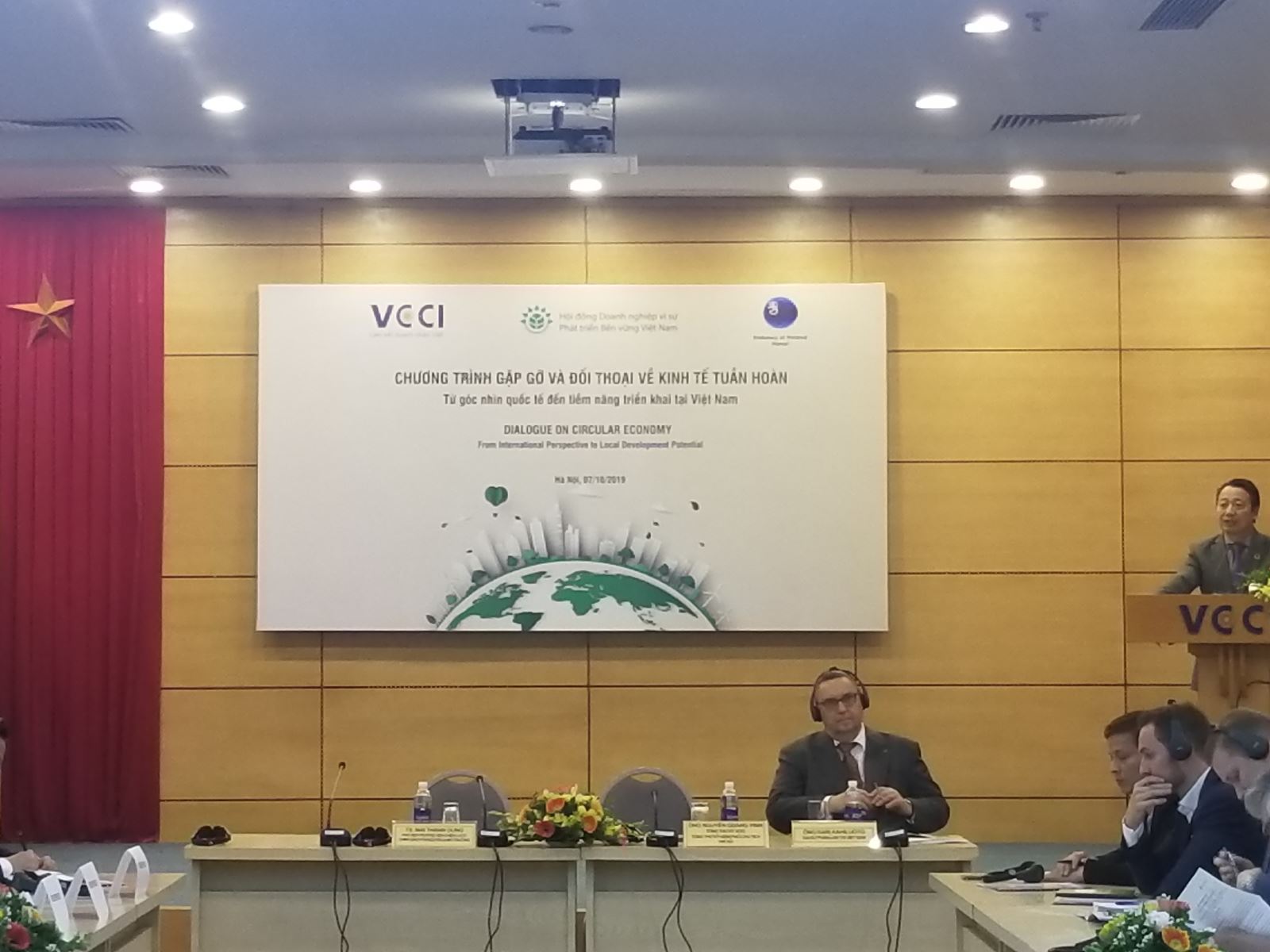 Overview of the dialogue.
|
“This is particularly significant as Vietnam is facing challenges regarding depleted natural resources, environmental pollution, climate changes, and the country’s commitments in various trade agreements for the goals of sustainable development and environmental protection,” Vinh said at a dialogue on circular economy held on October 7.
Vinh noted circular economy was one of the main topics discussed at the national conference on sustainable development in 2019 and received strong support from government agencies, provinces/cities, domestic and international organizations.
According to Vinh, circular economy has been recognized as a comprehensive model for intersection industrial growth, which is now being pursued worldwide to create a zero-waste economy.
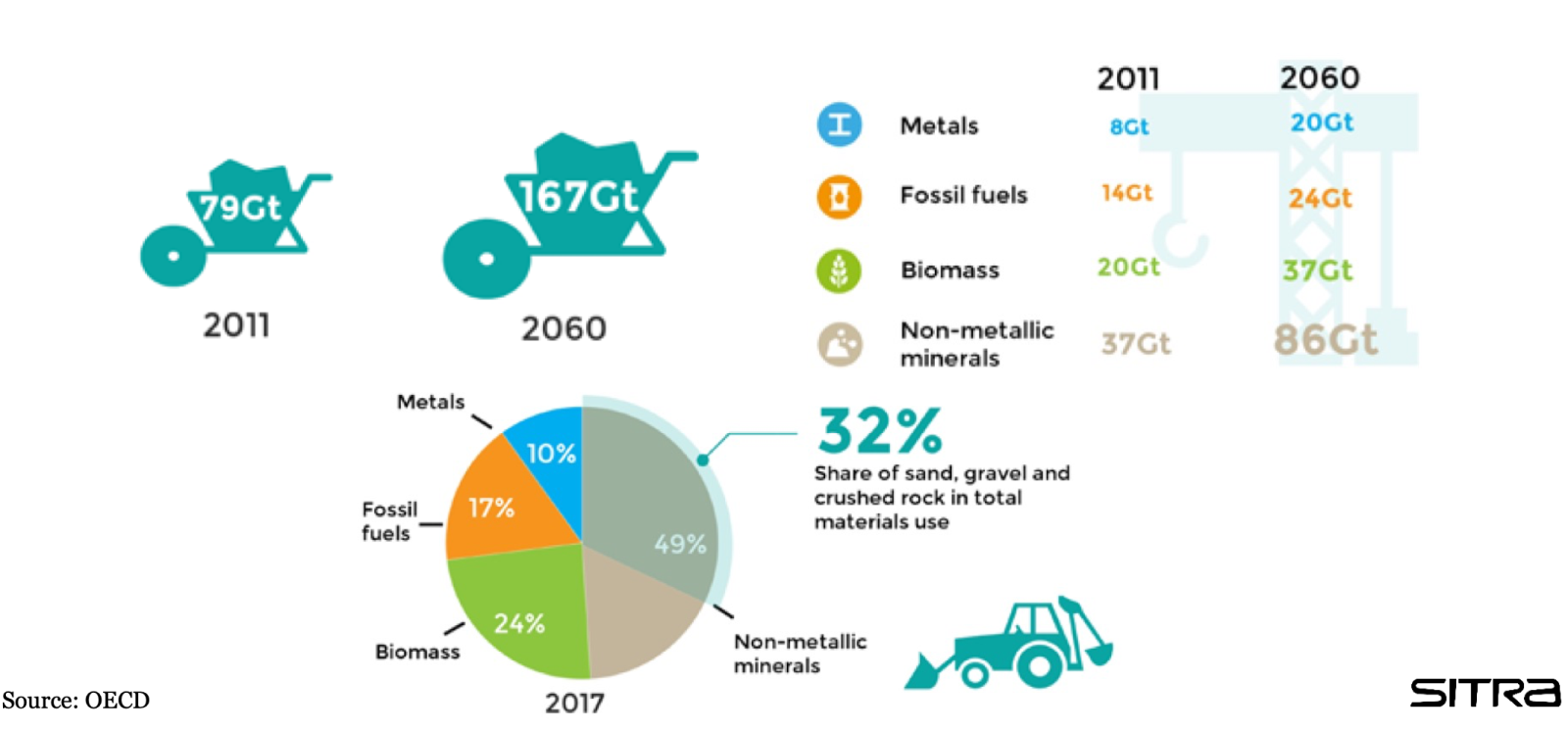 Global material consumption is projected to more than double by 2060 with current economic model.
|
International studies showed Vietnam is one of the five countries that pollute the most with plastic in Asia, while the amount of plastic waste released annually by the country could soon reach eight million tons.
Circular models target a more effective and optimal uses of natural resources, materials, products, semi-products and value they created, aiming to reduce the cost of loss and waste for the economy as well as protect our environment, Vinh stated, saying the preeminence of circular economy will create a more regular and sustainable development for nations than traditional linear models.
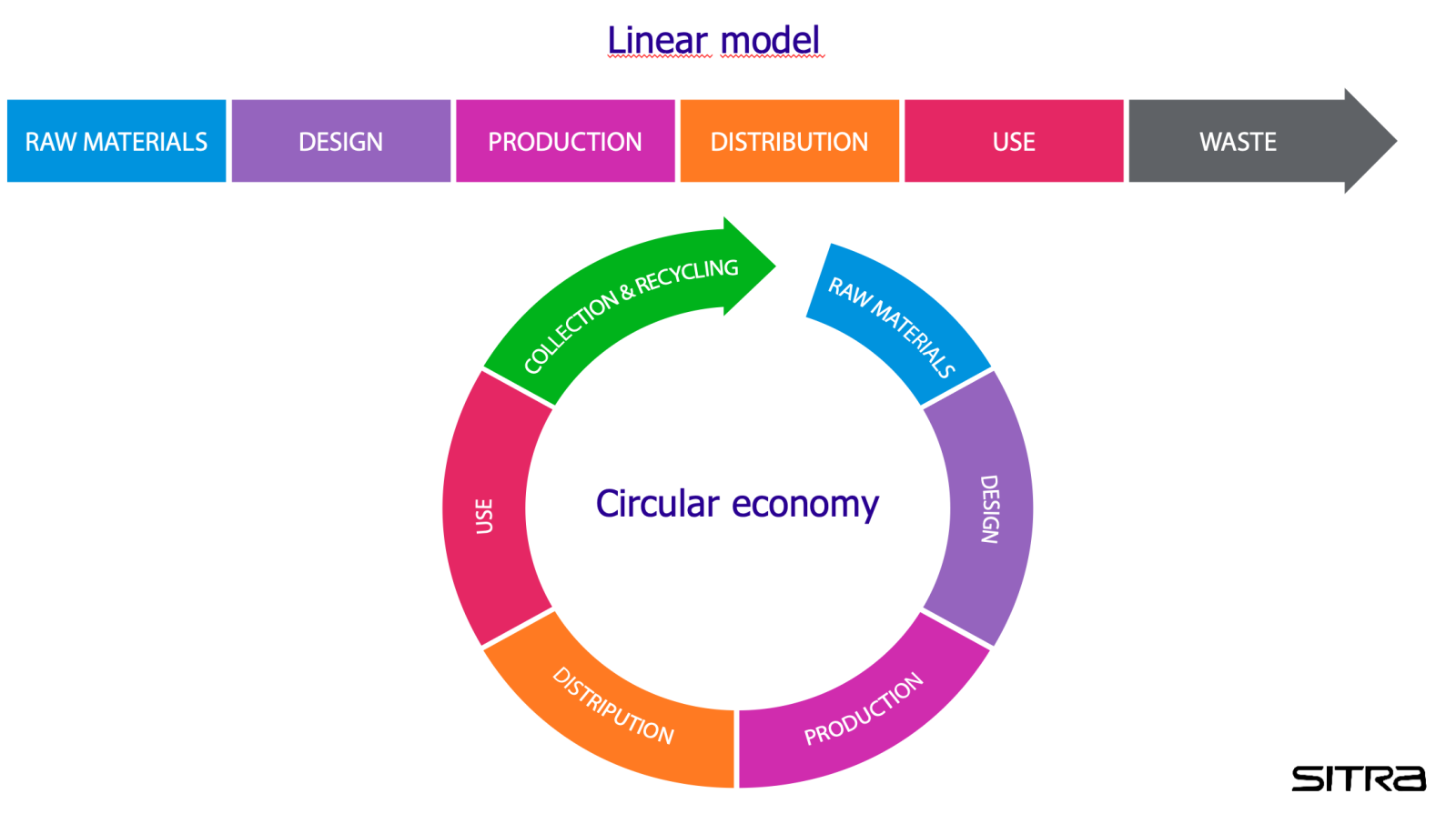 Linear vs Circular economic models.
|
Enterprises in particular and the economy in general always face the dilemma of ensuring both goals of economic efficiency and environmental protection, so circular economy could provide the answer for such issue, Vinh said.
“The Vietnamese government has taken actions to tap the US$4.5-trillion market potential generated by circular economy, specifically in 2019,” Vinh stressed.
“It is time for us to act rather than talk. Vietnamese enterprises have to act more to fulfill sustainable development goals by 2030. Enterprises play an essential role for a prosperous and sustainable Vietnam,” Vinh added.
Finnish Ambassador to Vietnam Kari Kahiluoto said the Finnish government has been pushing towards global agenda with priority placed on sustainable development, fighting against climate change and promoting renewable energies, among others.
“Finland targets to become a carbon-neutral circular economy and a successful pioneer in sustainable well-being,” Kahiluoto added.
Ernesto Hartikainen, senior expert at Finnish Innovation Fund Sitra, warned global material consumption is projected to more than double by 2060 with current economic model.
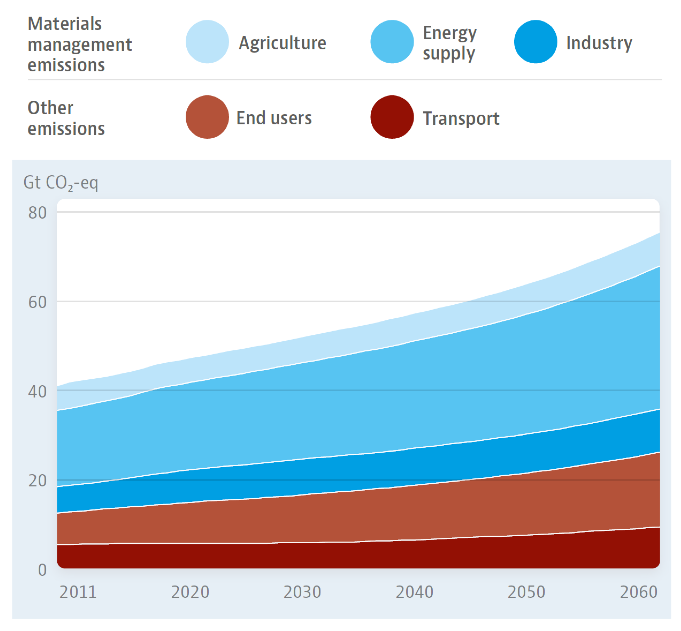 A linear economy would lead to an increase of annual GHG emissions from 40 to 75 gigatons by 2060. Source: OECD.
|
“Worryingly, a linear economy would lead to annual greenhouse gas emissions from current 40 gigatons to 75 gigatons by 2060,” said Hartikainen.
Hartikainen said a system which is restorative by design would retain more volume and value within the economy. Moreover, a more circular economy can reduce emissions from heavy industry by 56% by 2050.
The potential from a circular economic model is tremendous, as its global output is estimated to surge to US$25 billion by 2050 from the US$4.5 billion by 2030.
“In this scenario, net benefit for Europe by 2030 is forecast at US$1.8 trillion and cost savings for EU businesses at EUR600 million (US$658.7 million).”
Hartikainen recommended countries around the world, including Vietnam, should raise awareness of circular economy in education and as a competence of future talents. Hanoitimes
Ngoc Mai

Firms shouldn't let circular economy go to waste
Tran Thi Binh, 60, who lives in Ha Noi, has no idea about the circular economy but now brings her canvas bag shopping instead of taking plastic bags from the supermarket.

From trash to treasure: circular economy brings hope
Tran Thi Binh, 60, who lives in Hanoi, has no idea about the circular economy but now brings her canvas bag shopping instead of taking plastic bags from the supermarket.
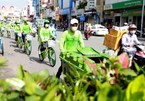
Vietnamese businesses urged to join circular economy
Vietnamese businesses cannot stand outside the circular economy, especially in the context of global economic integration with commitments on ecological and environmental safety standards through free trade agreements.
 The Vietnamese government has taken actions to tap the US$4.5-trillion market potential generated by circular economy, said an expert.
The Vietnamese government has taken actions to tap the US$4.5-trillion market potential generated by circular economy, said an expert.